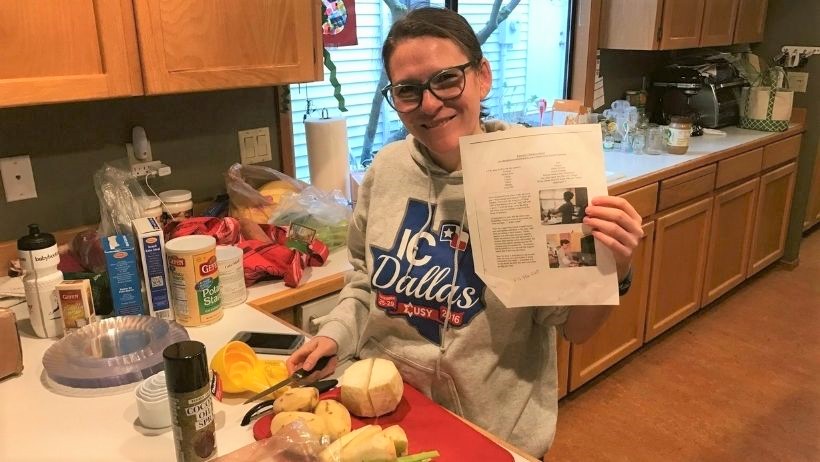Every year as Passover rolls around I get out all of my recipes. Each one comes from someone in my family and must be made the exact same way as the person who taught me, and in the exact same order. First comes the charoset the night before. Then chicken soup goes on the stove, followed by chocolate chip cookies and mandel bread. While that’s going, I prepare the gefilte fish, veggie kugel, and main course. Just like my mama taught me.

In particular, the soup has a very specific process to it, following the recipe of my Tanta, all the way down to the order in which I add the vegetables. And because the order matters to me, it must also matter to whomever is helping me make the soup that day. Of course it’s more about tradition than anything else. As much as the food should taste good, I worry that if someone doesn’t really understand the depth of the history of the food and the memories associated with this recipe, then everything will be ruined.
Is it just me, or does anyone else freak out about someone putting the parsnips in before the potatoes? Look no further than the Passover story itself to understand just how far back the notion of nuanced food prep goes.
This week, Parshat Bo details the Exodus from Egypt. The Israelites are a traveling people, and in Parshat Bo the Israelites are steps away from leaving Egypt. Pharaoh again refuses to allow the Israelites to leave, and each of the three refusals brings with it one of the three final plagues. The narrative continues with the procedures for leaving Egypt, including putting the lamb’s blood on the doorpost, packing up, and recreating these events by celebrating Passover in future generations.
As we read about their journey out of Egypt, the final meal of the Israelites takes center stage. The meal is delicious lamb, but not just any rack of lamb. This is lamb that serves a purpose, tells a story, and teaches a lesson. It is ritualistic eating, and as such, must be understood on a different level than flavor profiles and cooking techniques.
In chapter 12, verse 43, we learn that “no foreigner shall eat of it.” What was this ruling against inviting others to partake of the Passover meal? The commentary teaches that unless someone outside of Judaism can identify with the community’s historical experiences, they should not partake in the obligations and restrictions imposed upon the group. Meaning, this lamb is not just a meal shared between people; it is a teachable story that can only be understood by those with an open mind and heart.
Sometimes lamb is just lamb, and sometimes soup is just soup. Other times, so much more. Reading Parshat Bo offers a yearly reminder that food is one way to understand a culture, and sitting and eating together can be just as filling spiritually as it is satiating.



